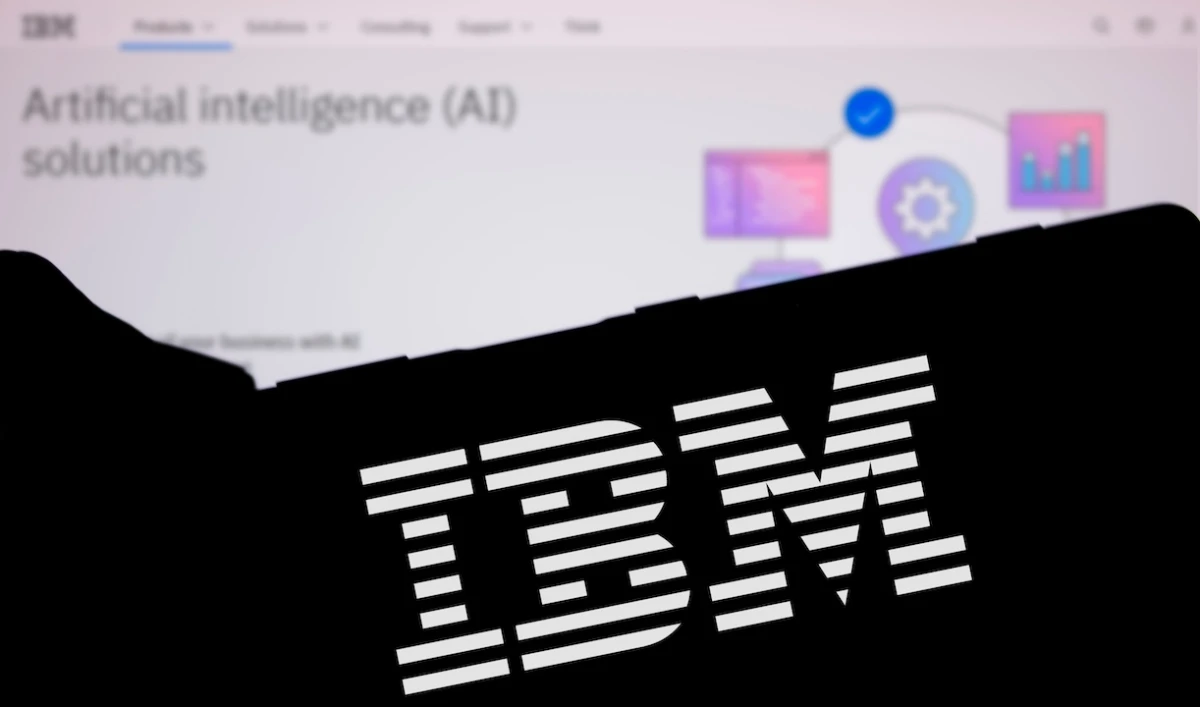#What You Need To Know
IBM reported a surge in AI bookings, exceeding $2 billion since mid-2023, doubling the previous amount disclosed in April. Consulting accounts for 75% of these bookings, with software expected to grow. Second-quarter sales rose 2% to $15.8 billion, beating analyst estimates. The software unit's revenue increased 7% to $6.7 billion, also surpassing expectations.
IBM continues its shift from hardware to high-growth software and services, highlighted by its proposed Hashicorp acquisition and last year's $4.6 billion Apptio purchase. Red Hat grew 7%, signaling potential for stronger performance in the latter half of the year. However, the consulting segment saw a 1% revenue decline to $5.2 billion, missing forecasts.
IBM shares rose 4% in extended trading, with a year-to-date gain of nearly 13%. Quarterly profit was $2.43 per share, above the $2.20 forecast. The company projects free cash flow to exceed $12 billion for the year, slightly up from previous guidance. Despite regulatory delays for the Hashicorp deal, CEO Arvind Krishna is confident it will close by year-end.
Sign up for Investing Intel Newsletter
#Why This Is Important for Retail Investors
Insight into Future Growth: Retail investors can gauge IBM's potential growth trajectory by analyzing the surge in AI bookings and software sales, providing insight into future revenue streams.
Competitive Positioning: Understanding IBM's strategic shift towards high-growth software and services helps retail investors assess the company's competitive positioning in the market.
Impact on Stock Performance: IBM's positive performance in Q2, beating analyst estimates and showing growth potential in subsidiaries like Red Hat, can impact the stock price and investor sentiment.
Acquisition Impact: Updates on IBM's acquisitions, like Hashicorp, provide valuable information to retail investors on potential synergies, risks, and the overall impact on IBM's operations and financials.
Confidence in Leadership: Retail investors can assess the effectiveness of IBM's leadership, like CEO Arvind Krishna, in navigating industry shifts, executing acquisitions, and driving growth, influencing their confidence in the company's future prospects.
#How Can You Use This Information?
Here are some of the investing ideas that can be explored using this information:
Growth Investing
IBM's focus on high-growth software and services, backed by strong Q2 performance, may appeal to growth investors seeking companies with expanding revenue streams.
Growth investing focuses on stocks of companies expected to grow at an above-average rate compared to other stocks in the market; learn more in our article titled 'What is Growth Investing?'.
Defensive investing
IBM's positive Q2 results and strategic shift towards software and services could position the company as a defensive investment option amidst market fluctuations.
Defensive Investing focuses on securing a portfolio by choosing companies that are less sensitive to economic downturns.
Sector Rotation
Observing IBM's performance can inform sector rotation decisions, indicating potential shifts in focus towards software and services sectors for investors looking to capitalize on industry trends.
Sector Rotation is the practice of shifting investment capital from one industry sector to another to take advantage of the economic cycle.
Innovation-Focused Investing
Retail investors interested in innovative technology solutions and advancements may find IBM's AI bookings and software growth align with an innovation-focused investment approach.
#Read What Others Are Saying
CNBC: IBM shares jump on earnings and revenue beat
Bloomberg: IBM Reports Boost in AI Bookings, Better-Than-Expected Revenue
